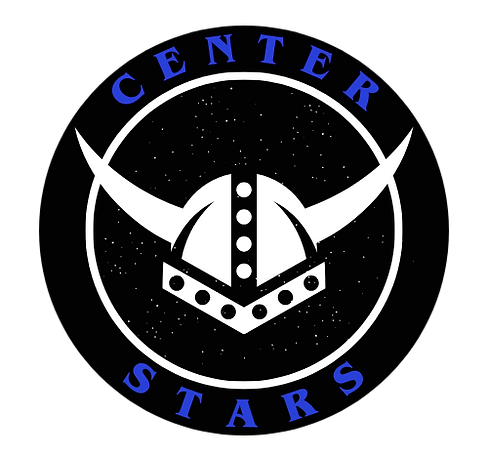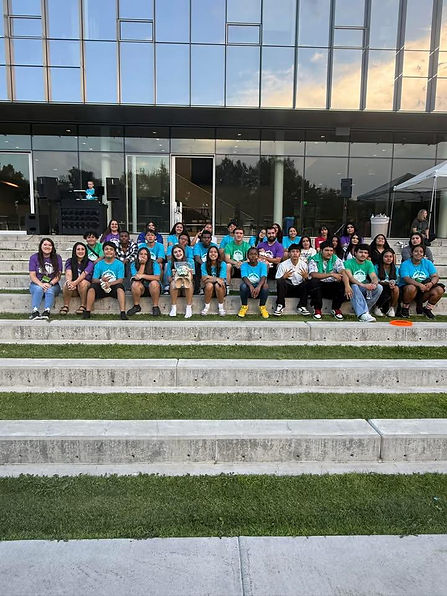STARS
Students Teaching About Relationship Success
The STARS Mentoring Program is a classroom-based, peer-to-peer mentoring program that engages and supports students to make positive life choices and build healthy relationships. STARS provides students the opportunity to discover themselves and build upon their skill set through our three core elements of self-awareness, healthy decision-making and MentorLife®, which means to always invest in someone and always have someone investing in you. STARS mentors receive training and mentoring from their program coordinator, then they in turn are paired with no more than four mentees where they lead activities and opportunities for discussion. Through the program, students are able to strengthen their leadership abilities, discover and practice positive social and emotional skills around mental health, healthy relationships and decision-making, gain confidence and feel valued.
Positive Youth Development
The STARS Mentoring Program is fundamentally based in theories of positive youth development. Rather than focusing on intervention strategies for negative, risky behaviors, the program focuses on prevention of these behaviors through promotion of pro-social, emotional, behavioral, and cognitive development (Catalano et. al., 2004; Benson et. al., 2007; Gavin et. al., 2010). It promotes “youth access to positive experiences, resources and opportunities,” and it is developmental, placing emphasis on “growth and an increasing recognition that youth can (and should be) deliberate actors in the production of positive development” (Benson et. al., 2007). The program targets all youth, upholding the idea that “all youth have the inherent capacity for positive growth and development” (Benson et. al., 2007). In line with theories of positive youth development, the program seeks to: promote bonding; foster resilience; promote social, emotional, and behavioral competence; foster clear and positive identities; provide recognition for positive behavior; provide opportunities for prosocial involvement; and foster prosocial norms (Catalano et. al., 2004). STARS is strengths-based and emphasizes the potential of all youth, rather than their supposed incapacities (Benson et. al., 2007).
.png)


Curriculum Topics and Formation
The STARS curriculum topics foster four areas of emotional intelligence, contributing to the students’ social and emotional development. The four areas of emotional intelligence include self-awareness (what do I feel?), social awareness (what do other people feel?), self-management (how can I control my emotions?), and peer relationships (how can I make and keep friends?) (McNeely and Blanchard, 2009). Youths’ social and emotional development work in concert; the STARS program works to develop all four areas of emotional intelligence to cultivate both social and emotional
development concurrently. Learning and practicing emotional intelligence, learning to gain and earn trust, practicing skills to achieve goals, and gaining knowledge to make healthy choices contribute to the completion of the STARS Mentee Theory of Change. The change model theorizes that by the end of the
program mentees will learn to believe in themselves, become a role model, and eventually be mentors themselves.
Relationship Building
To be successful, mentoring programs need to be primarily focused on the relationship between mentor and mentee (Karcher et. al., 2010; Karcher, 2009; Jain and Cohen, 2013; MENTOR: The National Mentoring Partnership, 2015). Though the curriculum is educational in nature, relationship building is the cornerstone and heart of the program. To foster relationships between mentors and mentees, the sessions are centered around both relational and goal-oriented conversations. Research shows that both of these conceptually distinct conversations contribute to relationship quality and that collaborative conversations are important in fostering strong mentoring relationships (Karcher et. al., 2010). STARS utilizes relatively unstructured check-in (“HiLo”) time to allow for these collaborative, relational conversations between mentor and mentee. In most sessions, mentors further facilitate structured, goal-oriented conversations on topics relating to the four areas of emotional intelligence. In this way, the STARS Program provides an environment in which relationships can thrive.
Collaboration and Structure
Highly structured cross-age peer mentoring programs have been found to have positive effects on students and help to bolster a mentor’s feeling of self-efficacy in building mentoring relationships (Karcher et. al., 2010; Karcher, 2009). However, authorship of conversation topics and activities is important (Karcher et. al., 2010). STARS is highly structured, but it allows space for mentors and mentees to take ownership of conversation topics and choose the activities for their Mentor Groups. It is both structured and collaborative, fostering self-efficacy in mentors and strong mentor-mentee relationships.
